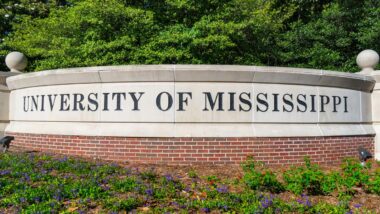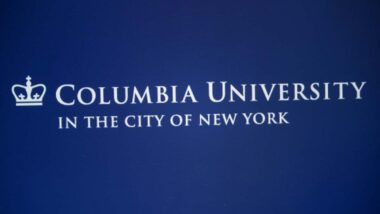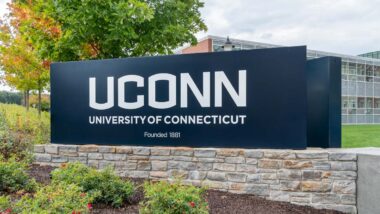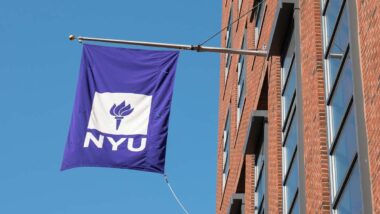Top Class Actions’s website and social media posts use affiliate links. If you make a purchase using such links, we may receive a commission, but it will not result in any additional charges to you. Please review our Affiliate Link Disclosure for more information.
The University of Phoenix has agreed to pay $191 million to settle charges that it used deceptive advertising to recruit students, according to reporting by NPR. Graduates of the University of Phoenix may be eligible to receive compensation if they were falsely brought to believe that the University would be able to provide them jobs with a handful of high-profile companies with whom the school claimed to have a relationship.
The school will pay $50 million in fines directly to the Federal Trade Commission (FTC) while the other $141 million will go towards forgiving student debt held by the school, according to the Arizona Capitol Times. Loans given directly by the school will likely be affected by this settlement, but it does not affect Federal or private student loans currently. Further compensation may be available through civil court, as well.
The university claims the marketing campaign concluded before the FTC began its inquiry and was carried out under previous ownership. In an emailed statement, the University of Phoenix claimed the school “acted appropriately and has admitted no wrongdoing.”
Is the University of Phoenix For-Profit?
The University of Phoenix is a for-profit school owned by Apollo Education Group Inc. The school was taken private, purchased by Apollo in 2016 for roughly $1.1 billion. Unlike non-profit schools run by the government or a religious organization, for-profit schools’ primary goal is to make money. Apollo both owns and runs the university.

What Were Graduates of University of Phoenix Offered?
When choosing a university, potential students often take into account the professional relationships that school has with high-profile companies. These relationships can often help graduates find jobs at those companies, and many companies hire specifically from universities with whom they have a relationship. It’s common for students to choose their university based on what company they would like to work at eventually, so claiming relationships with businesses can greatly influence a university’s enrollment.
“Students making important decisions about their education need the facts, not fantasy job opportunities that do not exist,” Andrew Smith, Director of the FTC’s Bureau of Consumer Protection, said in a statement.
Graduates of the University of Phoenix were told that the school had a close relationship with a number of big businesses. They also implied that these businesses directly influenced the curriculum of university classes. The university’s marketing campaign implied that classes were specifically designed, in coordination with the companies themselves, to prepare students to work at these companies. The FTC has found these claims to be false.
Which Companies Were Promoted in the University of Phoenix Job Placement?
Graduates of the University of Phoenix were allegedly told that the school had relationships with a number of high-profile companies. Students were led to believe the school had ties to Microsoft, Twitter, Adobe, Yahoo!, American Red Cross, AT&T, Avis, MGM Resorts, and Newell Rubbermaid, among others. The FTC has found that the university did not have relationships with these companies.
Truthfully and legally, the University of Phoenix could neither guarantee job placement at these businesses, nor could they claim that they had worked with the businesses on curriculum development. The FTC states that these businesses were chosen by the university as a part of their marketing campaign purely to bring in more students.
In one of these University of Phoenix ads, the logos of these companies appeared on the screen while a voiceover said, “at University of Phoenix, we’re working with a growing list of almost 2,000 corporate partners, companies like Microsoft, American Red Cross, and Adobe, to create options for you.” This misleading campaign ran from late 2012 to early 2014.
On top of the false promises that the FTC argued that the University of Phoenix used to attract new students, the ad campaign also allegedly targeted certain vulnerable groups in particular, including people of color and military veterans, reports Forbes.
And instead of graduating with the promised career prospects and connections the university had promised, students would often graduate from the University of Phoenix with “dismal career prospects, minimal ongoing support, and a lot of student loan debt that could be impossible to repay,” according to the Forbes report.
For-Profit College Students Pay More, Graduate Less Often
“Despite the more than $100 million in relief, it’s a drop in the bucket in terms of the total amount of debt that these borrowers owe,” said Seth Frotman in an interview with NBC News last winter.
Frotman is the executive director of a nonprofit advocacy group called the Student Borrower Protection Center.
“I think what this case demonstrates is the deep systemic problems that continue to exist in the student loan market and in particular around predatory for-profit schools,” lamented Frotman.
The Student Borrower Protection Center has developed a partnership with the University of California, Irvine School of Law to create the Student Loan Law Initiative (SLLI), promoted as the first academic project to study student debt and the law. Using data-driven research, scholars are looking at how mounting student debt affects other aspects of the economy and of society. The consequences of student debt tend to branch out into families, communities, governments and the court system.
NBC News also spoke with William Hubbard from the Student Veterans of America regarding the settlement for graduates of the University of Phoenix.
Hubbard told NBC that because private loans are not covered, many students will find they don’t receive relief from the University of Phoenix settlement.
He said the University of Phoenix case “heavily underscores that questionable practices to aggressively recruit students are not acceptable.”
For-profit schools tend to have more dropouts than found at public and private colleges. Statistics from 2017 show that just 21 percent of those taking classes at for-profit colleges earned a four-year degree in a six-year period. People enrolled at public or private colleges earned their bachelor’s degrees within six years at three times the rate of their for-profit student peers.
Some students who were enrolled between Oct 1., 2012 and Dec. 31, 2016 have already seen their outstanding balances with the University of Phoenix be automatically forgiven, and notified through letters and emails that they no longer owe school payments. However, this does not include any federal and private loans these students may have taken out in order to afford enrollment with the University of Phoenix.
Should You File a Lawsuit Against University of Phoenix?
The marketing campaign ran from late 2012 to early 2014. The settlement applies to graduates of University of Phoenix who enrolled between Oct.1, 2012 and Dec. 31, 2016. If you enrolled during this time frame and were led to believe you would get a good job after graduating, you may be eligible for compensation. You may be able to take part in a mislabeling, false advertising, consumer protection lawsuit.
If you are a Texas or California resident who graduated from the University of Phoenix and did not get a job in your chosen field after graduating, you may be eligible to join a University of Phoenix lawsuit investigation for free.
Filing a lawsuit can be a daunting prospect, so Top Class Actions has laid the groundwork for you by connecting you with an experienced attorney. Consulting an attorney can help you determine if you have a claim, navigate the complexities of litigation, and maximize your potential compensation.
Join a Free University of Phoenix Class Action Lawsuit Investigation
If you are a Texas or California resident and were misled by University of Phoenix’s representations about job prospects, and did not get a job in your field of study after graduation, you may be eligible to join a FREE University of Phoenix lawsuit investigation.
This article is not legal advice. It is presented
for informational purposes only.
ATTORNEY ADVERTISING
Top Class Actions is a Proud Member of the American Bar Association
LEGAL INFORMATION IS NOT LEGAL ADVICE
Top Class Actions Legal Statement
©2008 – 2024 Top Class Actions® LLC
Various Trademarks held by their respective owners
This website is not intended for viewing or usage by European Union citizens.
















17 thoughts onWere You Misled by Job Placements Offered to Graduates of University of Phoenix?
I went to University of Phoenix in Henderson Nevada. They promised to help me fined a job. They never did. They said I had to do extra classes to graduate. I paid for those classes. They where not honest. It took 5 years to graduate not 4.
I believe I would be eligible to qualify for this class action, please provide me with additional information.
Add me please. School in 2008-2010, told I would be able to get a better job and salary increases. Nobody has looked at my UOP degree as legitimate, ever. My IBR plan over the years is proof positive that my degree obtained no advantage and I now owe more than I did at graduation because of layoffs and the lack of validity of that degree. Help please
I also graduated in 2014 and was promised job placement.
I was told an online MBA Master Degree in Spanish would not only be easier for me but will also be part of a pilot program for Spanish speaking students for halve the cost. In addition. They also promised that the MBA degree will assure a managerial position which never happened. I also never received any support from their professors. Even though, I was supposed to have support for of the courses. The financial department along with the recruiter teamed up to offer me $20k student loans from UOP which will get me thought the whole program and I could also be able to spend money in preparing and set up my own student desk, computer, printers and any other study material I needed at that time. The program was a joke and I ended up with $42k debt in loans which grew to $55k because of the interest accumulated during tropical storm Maria, IRMA and COVID.
I’d there is more information needed, please reach out.